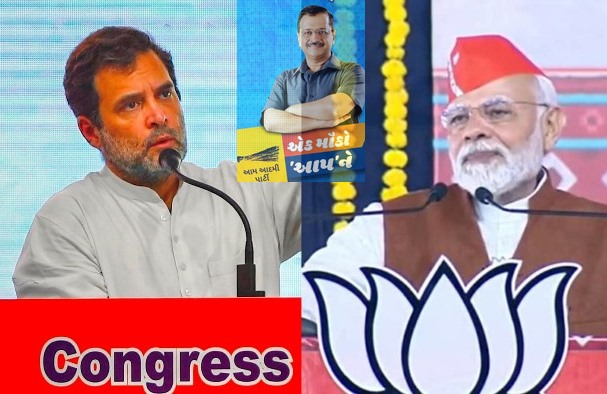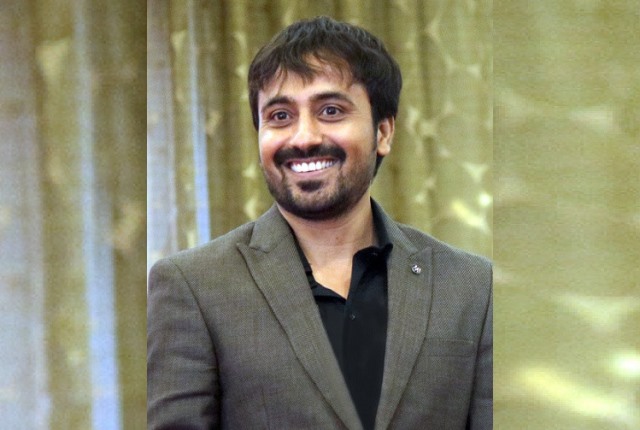It’s been almost three decades now since the BJP and the Sangh Parivar have been ruling Gujarat, which is its social and political stronghold, and its most successful ‘lab of Hindutva’. In a largely polarised state, Prime Minister Narendra Modi is the unilateral leader of a huge chunk of the majority community, and it does not really matter who the chief minister is anymore. Hence, there is no reason why the BJP should not yet again win the 2022 assembly polls in the state, however tight and messy it might get in the end.
However, the signs from the ground are telling a slightly different story, even as the campaign picks up heat. Political observers and certain transparent indications point to the fact that the ruling party is not so confident any longer, even while the close result in the last assembly polls in 2017 seems to be haunting its top leadership.
In the last election, despite the last-minute rhetorical appeals and the typically negative polarising cards, the BJP could manage just about 99 seats in the assembly of 182, with the Congress scoring 77. Critics point out cynically that at least 15 to 20 seats in this tally seemed to be very, very close, and could have gone either way. Hence, the rhetoric of winning a huge majority, perhaps as many as 150 seats, did not quite come match the bitter reality, suggesting strong anti-incumbency and stagnation in its loyalist vote base, mass disgruntlement across the large sections of the urban, rural and tribal segments, unhappiness among the trading and business classes as in Surat, and the fading charisma of the prime minister in his own home turf.
Besides, in the post-polls scenario last time, as Dalit MLA Jignesh Mewani told Lokmarg, majority of the Congress MLAs, unlike, for instance, in Karnataka or Madhya Pradesh, stood their ground with the party, and did not switch over to the BJP, for the lure of power or privilege. (Some, however, found a cosy space in the saffron party, yet again raising the question of ideological commitment among Congress MLAs.)
The top brass of the BJP, including current chief ministers from the states where it is ruling, are set to campaign in Gujarat, which used to earlier be a one-dimensional, one-man rollercoaster ride. Amit Shah, who had reportedly withdrawn from state politics, is now once again holding the reins as chief strategist, appeasing rebels and smoothening the well-oiled machinery, which seems to be creaking in recent times, with a large number of inactive state leaders simply looking up to the PM to coast them to victory. After the ticket distribution, rebel activities in several constituencies have arrived as bad news for the party.
As many as 38 sitting MLAs have been dropped from the final list, even as almost 90 seats have been given to the OBCs and Patidars. Former CM Vijay Rupani and his deputy, Nitin Patel, along with senior leader Bhupendrasingh Chudasama, will not be contesting. They have pledged their loyalty to the party and wowed to work for its victory. Earlier, Rupani’s entire cabinet was dropped and a new CM was chosen, a first-time legislator, with neither charisma nor mass appeal. He is known to be a loyalist of the PM, as is the BJP state chief, CR Patil. Anyway, loyalties in BJP can’t mark a sudden paradigm shift, given the current circumstances. There have been unconfirmed reports of ‘tension’ within the ‘top leadership’ of the party in Delhi with these changes coming into effect in Gujarat.
Jignesh Mewani points to the ground-level “silent work” done by the Congress since the Chintan Shivir held in February this year in the state led by Rahul Gandhi. “Don’t underestimate the Congress. Our four yatras across urban and remote regions in the state have been successful. All our leaders and cadre have been working at the grassroots since months. This will not be a cake-walk for the BJP this time also, as it was not so in 2017,” he said.
ALSO READ: ‘Voters Are Disgruntled, But Choices Are Limited’
Besides, there are unconfirmed reports from Himachal Pradesh that the BJP might not really do well in the polls out there. Though the hill state does not celebrate the politics of polarization, signals from there will have an impact in Gujarat.
The ‘silent’ campaign of the Congress was pointed out by the PM himself in a rally in early October, as he alerted his party workers. “I need to warn you because it appears to me that this time the Congress has adopted a new strategy. I have not probed, but that is what appears to me at the first glance,” he told a rally in Anand. There seems to be a different strategy this time since the Congress is working “silently” and will be using “manipulative” methods, he had warned.
Congress sources point out that the departure of Patidar leader Hardik Patel and OBC leader Alpesh Thakore will have little impact on the ground, because the movements they had earlier led were against the BJP-led government, and the youth of their communities feel betrayed by them. “For how long can Hindutva work in the face of real issues?” asked a Congress leader, stressing that there is an aggressive campaign on the ground with 25 big public meetings and rallies in 125 constituencies, with its CMs from Rajasthan and Chhattisgarh campaigning, along with other top leaders, including Sonia and Priyanka Gandhi. Party leaders from Bihar and other states are campaigning in the districts. There is yet no indication if Rahul Gandhi will address a rally.
The Congress manifesto has promised debt-waiver for farmers, gas cylinder at ₹500 and 300 free units of electricity, no rampant privatization of education and health sectors, 10 lakh government jobs, and the restoration of the old pension scheme. Indeed, these issues, along with the suffering caused to the traders and small-scale entrepreneurs due to the imposition of GST and demonetisation, continue to simmer in the public consciousness, along with the relentless post-pandemic trauma of increasing poverty and mass unemployment, especially among the youth.
It is in this context that the AAP seems to have made a grand entry, especially in the urban areas, though it is now being said that it has peaked a bit too early and is losing its fizz. The BJP won almost 50 seats in the big cities, and the AAP is concentrating in urban areas, with its promises of ‘shandaar schools’, free electricity, perks to small-scale industry and traders, and a brand new health infrastructure with Delhi as a role model. The party has indeed captured the imagination of certain sections of urban society who are looking for ‘development and freebies’ beyond the politics of Hindutva, and with its ‘apolitical’ freshness and organizational acumen, an energetic AAP cadre seems to pushing the threshold in the cities. A seasoned journalist based in Ahemdabad told Lokmarg earlier that in case of a hung assembly, the AAP might back the Congress.
Meanwhile, in a significant and brave move, the Congress has declared that it will revoke the decision to free the accused in the Bilkis Bano case. This should appeal to not only the minorities and women, but also a big chunk of liberal and secular voters in Gujarat, who have over the years been steadfast Congress supporters, and who have refused to be swayed by either hate politics, or the consolidation of Hindutva in the state.

